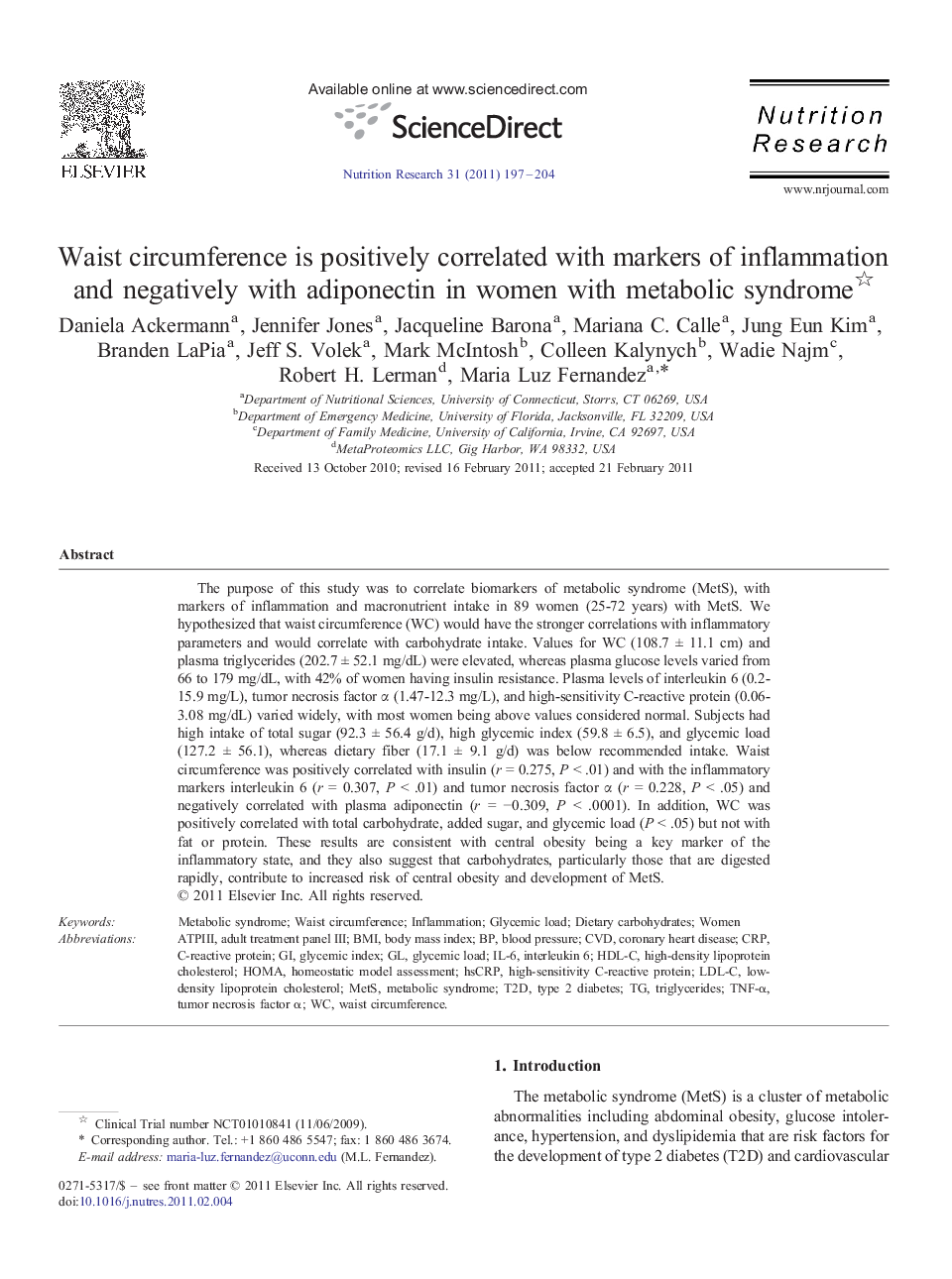| Article ID | Journal | Published Year | Pages | File Type |
|---|---|---|---|---|
| 2809380 | Nutrition Research | 2011 | 8 Pages |
The purpose of this study was to correlate biomarkers of metabolic syndrome (MetS), with markers of inflammation and macronutrient intake in 89 women (25-72 years) with MetS. We hypothesized that waist circumference (WC) would have the stronger correlations with inflammatory parameters and would correlate with carbohydrate intake. Values for WC (108.7 ± 11.1 cm) and plasma triglycerides (202.7 ± 52.1 mg/dL) were elevated, whereas plasma glucose levels varied from 66 to 179 mg/dL, with 42% of women having insulin resistance. Plasma levels of interleukin 6 (0.2-15.9 mg/L), tumor necrosis factor α (1.47-12.3 mg/L), and high-sensitivity C-reactive protein (0.06-3.08 mg/dL) varied widely, with most women being above values considered normal. Subjects had high intake of total sugar (92.3 ± 56.4 g/d), high glycemic index (59.8 ± 6.5), and glycemic load (127.2 ± 56.1), whereas dietary fiber (17.1 ± 9.1 g/d) was below recommended intake. Waist circumference was positively correlated with insulin (r = 0.275, P < .01) and with the inflammatory markers interleukin 6 (r = 0.307, P < .01) and tumor necrosis factor α (r = 0.228, P < .05) and negatively correlated with plasma adiponectin (r = −0.309, P < .0001). In addition, WC was positively correlated with total carbohydrate, added sugar, and glycemic load (P < .05) but not with fat or protein. These results are consistent with central obesity being a key marker of the inflammatory state, and they also suggest that carbohydrates, particularly those that are digested rapidly, contribute to increased risk of central obesity and development of MetS.
